2025 Compliance Guide: Vapor Products, THC-A, and Delta-8 THC
Overview of the Regulatory Landscape
The U.S. regulatory framework for vapor products, THC-A, delta-8 THC, and vape dispensing machines is evolving rapidly. In the face of new federal and state rules, staying compliant is crucial to avoid fines or business interruptions. For detailed guidance, see our Ultimate Compliance Guide for Vape Vending .
This guide addresses:
- Federal requirements and FDA-vetted vapor products
- State-by-state laws impacting vape vending operations
- Key legislation for THC-A and delta-8 THC
Federal Registry of Vapor Products
The FDA’s Center for Tobacco Products (CTP) maintains a Federal Registry of authorized vapor products. Manufacturers must submit product data through the Premarket Tobacco Product Application (PMTA), focusing on:
- Potential youth appeal & marketing
- Health risks and scientific evidence
- Environmental impact & proper disposal
For more details on PMTA compliance, check our Ultimate Compliance Guide .
State-Specific Changes and Compliance Updates
Each state enforces unique rules regarding vape vending machines, THC-A, and delta-8 THC. Keep up with evolving local laws via our State-by-State Laws and Updates .
Key State Highlights
- California: Bans flavored tobacco products; requires adult-only placement for vending machines
- New York: Enforces stringent age checks & flavored product restrictions
- Oregon: Allows vape vending only in age-restricted venues
- Utah: Completely prohibits vape vending machines
Get full details in our State Compliance Guide .
Pending Legislation & Industry Trends
As federal and state agencies gear up for tighter enforcement heading into 2025, businesses should anticipate:
- Stricter Age Verification: The PACT Act and potential federal mandates on biometric or advanced ID scanning
- Flavor Ban Extensions: More regions adopting rules akin to California or New York
- Farm Bill Revisions: Hemp-derived cannabinoids like delta-8 THC and THC-A may face updated federal regulations
Leverage our Ultimate Compliance Guide to stay proactive amid these potential shifts.
Age Verification in Vending Machines
Age verification is the cornerstone of compliance. States like California, New York, and others mandate placing vending machines in restricted areas and integrating high-level authentication tools, including:
- Biometric Verification: Facial recognition or fingerprint scanning
- Digital ID Scanning: Real-time validation of government-issued IDs
- Selfie Authentication: Confirming identity via photo matching
Visit VapeTM’s Age Verification Solutions to reduce liability and maintain compliance.
Why Choose VapeTM for Compliance?
VapeTM offers an all-inclusive compliance ecosystem, ensuring you’re always prepared for regulatory shifts:
- Ultimate Compliance Guide : Straightforward breakdowns of federal & state rules
- Age Verification Solutions : Biometric & digital ID scanning to prevent underage sales
- State Compliance Guide : Track local regulations and updates in real time
Ready for a Free Compliance Consultation?
Navigating the evolving landscape of vapor product laws, THC-A, delta-8 THC, and vape vending machine regulations can be complex. Let our team at VapeTM guide you through 2025 compliance with personalized solutions, cutting-edge age verification, and consistent state-law monitoring.
Disclaimer: This guide is for informational purposes only and does not constitute legal advice. Consult a licensed

4 comments
VapeTM is working on integrating their VTM Vending software with Dutchie to provide state-compliant tracking. Learn more here. https://vapetm.com/blogs/cannabis-vending/compliance-dutchie-integration
The new FDA-related registry bills can significantly impact vape vending machines in several ways:
Restricted Product Availability:
These bills limit the sale of e-cigarette and nicotine products to those explicitly approved by the FDA or still under review through the Premarket Tobacco Product Application (PMTA) process. Unauthorized products commonly sold in vape vending machines may no longer be allowed.
Impact on Flavored Products:
Many flavored vape products are not FDA-approved and could be excluded from state registries. This might reduce the variety of products available in vending machines, especially those targeting adult-only locations.
Increased Compliance Requirements:
Operators of vape vending machines will need to ensure that only FDA-authorized products are stocked. This may require detailed product tracking, proof of registration, and coordination with suppliers.
Self-Certification Loopholes:
Some registry laws permit manufacturers to self-certify their products’ eligibility. This could create confusion for vending machine operators about whether a product is genuinely compliant.
Age Verification Technology:
Registry laws often emphasize preventing youth access. Vape vending machines may need enhanced age verification systems to align with stricter enforcement and public health objectives.
Operational and Financial Costs:
Ensuring compliance with registry laws might increase operational costs, including software updates, product vetting, and enforcement-related fines or penalties for violations.
Market Consolidation:
Larger, FDA-compliant brands like Juul or Altria benefit from these laws, while smaller or international manufacturers may struggle to comply. This could limit the product diversity available to vending machine operators.
Potential for Legal Uncertainty:
Since the FDA’s PMTA process is still ongoing, many products remain in a legal gray area. This uncertainty can create challenges for vending machine operators in deciding which products to stock.
Opportunities for Compliance-Ready Machines:
Machines equipped with robust compliance tools, such as automated product verification and real-time software updates, may have an edge in navigating these regulations.
The future of Delta-8 THC and marijuana vending, coupled with age verification technology, is poised for significant growth. However, this expansion must be carefully managed within the evolving legal framework to ensure consumer safety, regulatory compliance, and the responsible sale of age-restricted products.
THCA is legal in a lot of states. This is such a good idea!